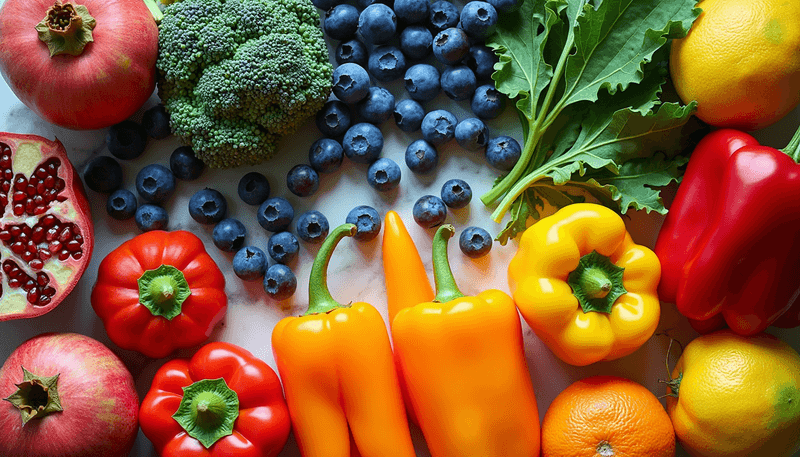Antioxidants May Not Lower Blood Pressure

You've probably heard it countless times: "eat more colorful fruits and vegetables for better health." This advice often comes with promises of lower blood pressure, especially for women navigating menopause. But what if I told you that the relationship between dietary antioxidants and blood pressure isn't as straightforward as we thought? A groundbreaking study from Iran challenges our understanding of antioxidants' role in managing postmenopausal hypertension, and the results might surprise you.
Not All Antioxidants Are Created Equal
The study followed 1,936 postmenopausal women, examining their dietary intake of various antioxidants, including selenium, vitamins A, C, and E, and several carotenoids. Contrary to popular belief, higher consumption of these antioxidants didn't significantly reduce blood pressure levels. This finding challenges the common wisdom that loading up on antioxidant-rich foods alone can keep hypertension at bay.
Have you ever wondered why some women maintain healthy blood pressure after menopause while others struggle, despite similar diets?
What this means for you:
- Focus on overall dietary patterns rather than individual nutrients
- Consider multiple approaches to blood pressure management
- Work with healthcare providers to develop a comprehensive strategy
The Complexity of Blood Pressure Management
Think of blood pressure management like orchestrating a symphony – every instrument (or in this case, lifestyle factor) needs to play its part harmoniously. The research revealed that factors like age, education level, and body mass index had significant associations with blood pressure levels. This suggests that managing hypertension requires a multi-faceted approach.
Key strategies for blood pressure management:
- Maintain a healthy weight through regular physical activity
- Reduce sodium intake while increasing potassium-rich foods
- Practice stress management techniques
- Monitor blood pressure regularly
- Get adequate sleep
Quality Over Quantity in Dietary Choices
The study introduced an interesting metric called the Dietary Antioxidant Quality Score (DAQS). Surprisingly, women with medium-quality DAQS had higher odds of elevated blood pressure compared to those with low-quality scores. This counterintuitive finding suggests that the timing, combination, and overall dietary pattern might matter more than simply increasing antioxidant intake.
What if the secret to healthy blood pressure lies not in how many antioxidants we consume, but in how our body processes and uses them?
Practical tips for optimizing your diet:
- Eat a variety of whole foods rather than focusing on specific nutrients
- Choose fresh, seasonal produce when possible
- Consider how different foods work together in your meals
- Pay attention to portion sizes and meal timing
The findings from this research remind us that there's no magic bullet for managing blood pressure during and after menopause. Instead of seeking simple solutions, we need to embrace a holistic approach to health that considers various lifestyle factors alongside dietary choices.
Looking ahead: While this study challenges some common beliefs about antioxidants and blood pressure, it opens up new questions about how we can better support cardiovascular health during menopause. Future research may help us understand the optimal combination of dietary and lifestyle factors for managing blood pressure effectively.
Take action today: Start by keeping a food and blood pressure diary for two weeks. Note what you eat, when you eat it, and your blood pressure readings. This information can help you and your healthcare provider develop a personalized strategy for maintaining healthy blood pressure levels. Remember, it's not just about what you eat – it's about creating a sustainable, healthy lifestyle that works for you.
What one change can you make this week to support your cardiovascular health beyond just focusing on antioxidant intake?

Dr. Marcus Anthony Bennett
Dr. Marcus Bennett is a Seattle-based freelance medical writer and consultant specializing in mid-aged women's health. With a background in internal medicine and over a decade of experience in preventive care, he is dedicated to making complex health topics accessible. Dr. Bennett completed his MD at Johns Hopkins School of Medicine and residency at the University of Washington. His empathetic and evidence-based approach combines traditional medical expertise with a focus on health disparities, often incorporating practical lifestyle advice. Known for his clear, engaging communication, Dr. Bennett provides actionable insights to empower his audience.







